Anne Hathaway and Rebecca Miller on Creating a Giddy Love Story for Everyone

Anne Hathaway has some sage advice for us all: "If you are feeling overwhelmed by life, go see She Came to Me!” As someone who is, in fact, feeling such a way and who has seen the enchanting romantic comedy, I can attest to this statement. Written and directed by Rebecca Miller (Maggie’s Plan and The Private Lives of Pippa Lee), She Came to Me is a delightfully funny and unpredictable tale about the transformational power of love starring Hathaway, Peter Dinklage, and Marisa Tomei. You’ll laugh, maybe cringe, and definitely shed a tear.
What makes this film so truly wonderful, though, is its oddball cast of characters. An internationally renowned opera composer in the midst of a major creative block finds inspiration for his next great piece from a chance meeting with a thrill-seeking tugboat captain. A hyper-organized psychiatrist with a penchant for cleanliness faces a spiritual crisis, and two teenagers embark on a great first love that threatens to derail their futures.
Miller’s ability to weave together these individual love stories into a classic screwball comedy is nothing short of fantastic. Earlier this week, we caught up with Miller and Hathaway, who pulled double duty on the project playing the role of Patricia and serving as a producer, to talk about the film’s many charms.
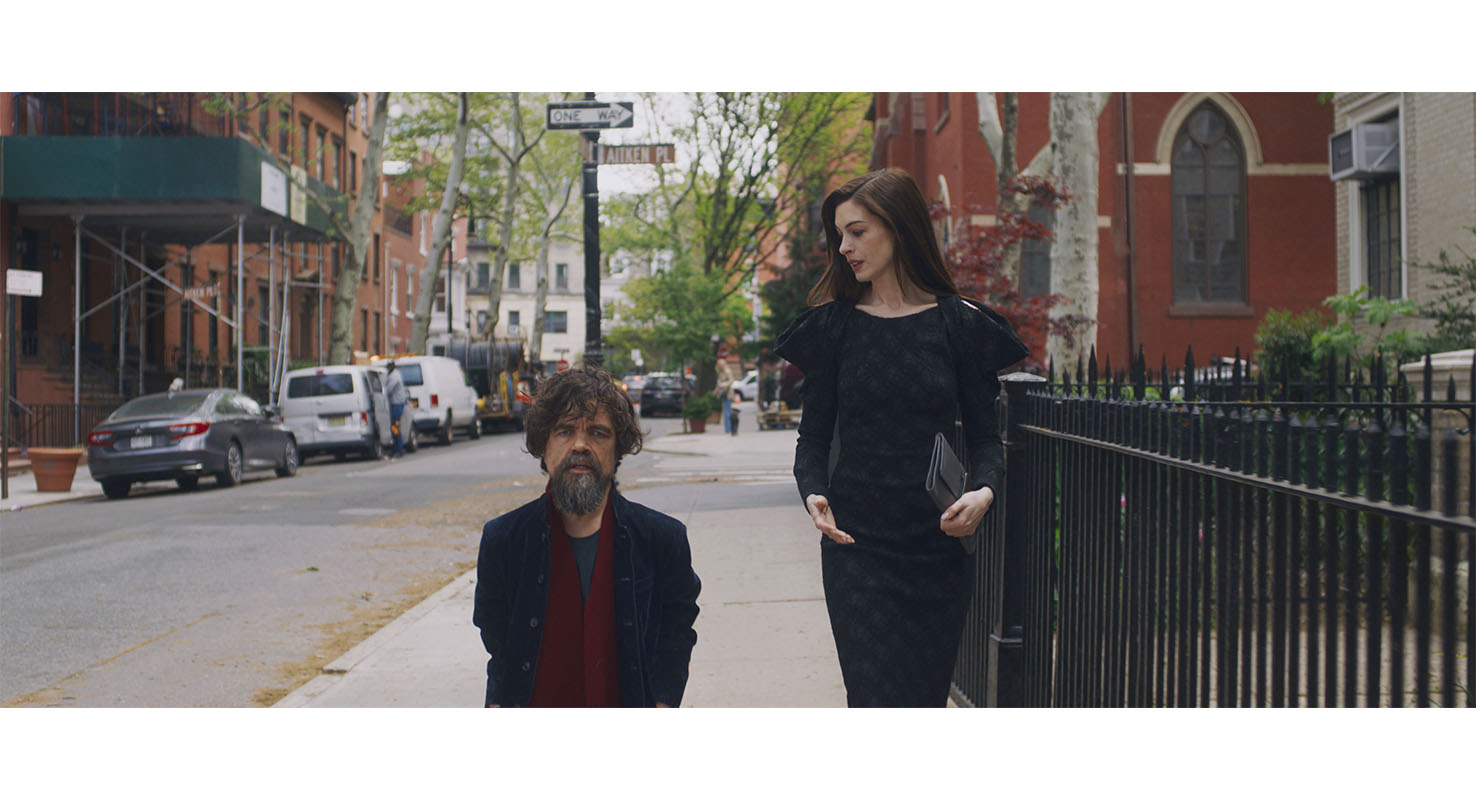
There’s a scene after Steven’s opera about the tugboat captain where he is asked how he came up with this story, and he answers that the character came to him while taking a walk. Rebecca, this first question is for you: Where/how did this idea for the film come to you?
Rebecca Miller: It was over a long process of years, I have to say. I started with a short story called "She Came to Me,” which is published in a book called Total, but that was a while ago. It was the idea of a blocked writer who meets a woman who jangles him into having an idea. That character became an opera composer, and she became a tugboat captain. I had this idea of the two lovers who were young, who were really teenage lovers. In our culture, we tend to throw away our first love, and I was like, "What if it is the great love of your life?” And then I had the idea of Patricia, who is the therapist who has a secret love of her own that isn’t a person. How do you braid [all those stories] together? That’s what took so long, figuring out the structure of this thing. In many ways, structure does carry meaning. Somebody described it as a perfect puzzle of a film, which I loved because it is. It’s puzzle pieces that come together in the telling.
Anne, what about Rebecca’s writing and directing and this story, in particular, really excited you to come on board as both an actor and producer?
Anne Hathaway: I was so honored to be a producer on this film. It came after I had been involved as an actor for a few years, and we were trying to get the financing together. Rebecca called me, and I was in California, and she asked me to be a producer on it because she felt that my contribution to the film merited that. I started to cry because I was just doing what I always did, and it had never occurred to me that it had that level of value. So it opened up a world to me and my understanding of what I was doing. I’m so excited that this film exists. Forget all the other stuff. As a human being who really loves bighearted, super-smart movies about people I relate to on a human level, I’m just really thrilled to be a part of this and that it exists and that it’s out there and that I can recommend it to people who maybe are going through a breakdown. If you are feeling overwhelmed by life, go see She Came to Me.
As an actor—oh my gosh—this character is so rich. I mean all the different parts of her. I was really switched on by the idea of playing someone who had to become a professional person at a very young age and who couldn’t keep going with that anymore. It spoke to me, and I knew I could trust Rebecca. She has an amazing track record. I wanted to give it a go and see if I could do it.
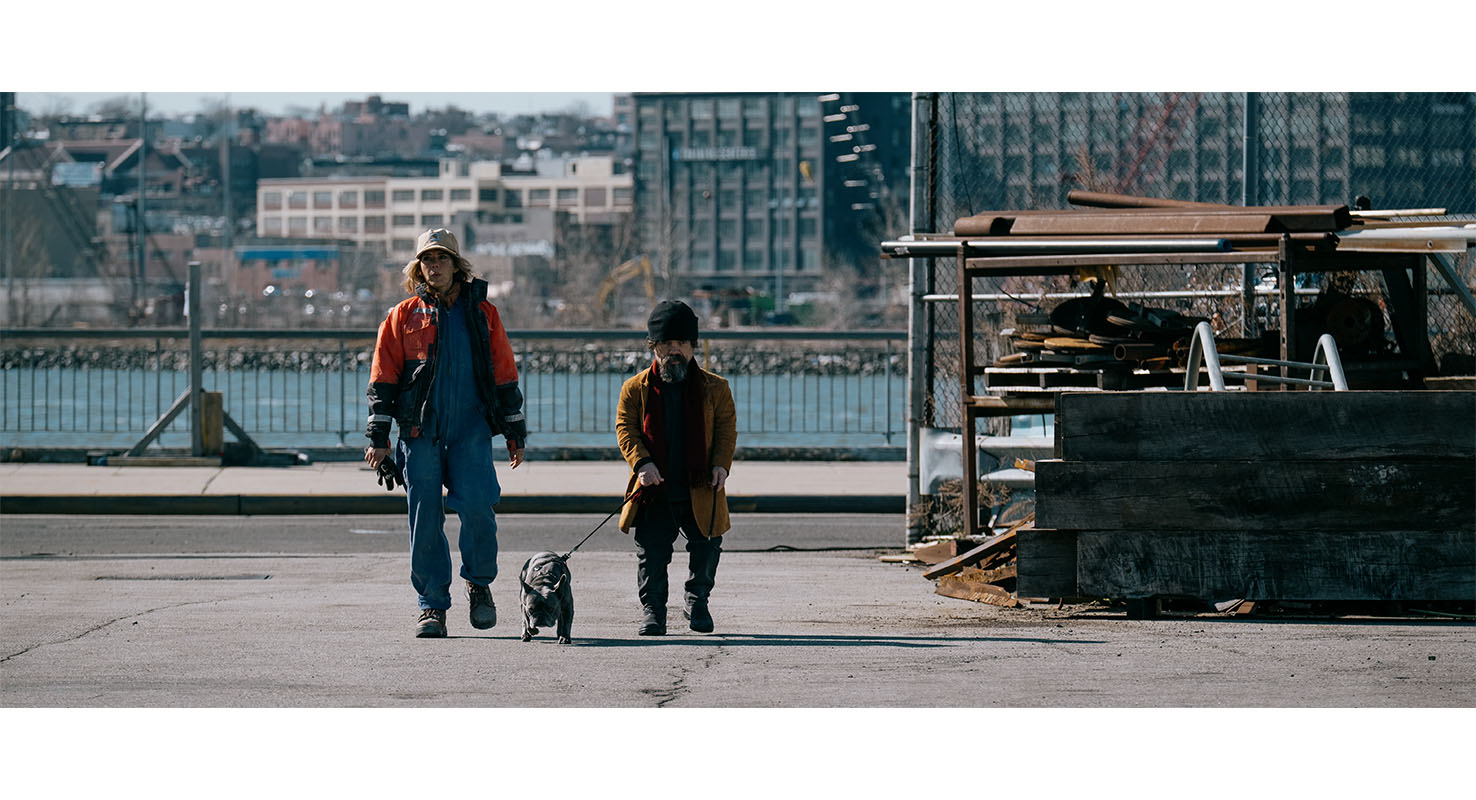
I want to dive into Patricia’s obsession with cleanliness and no clutter. Where does this stem from?
AH: Well, Rebecca wrote it that way, and I, as I mentioned, got really switched on by the idea, and I was like, "How far can you take it before people stop believing it?” I got really interested in the idea of being a functionally compulsive person because I think we’re all walking around with a lot of idiosyncrasies, frankly. But she had managed to set up her life in such a way that she was never lying, but she was never being fully herself, so therefore, she was never being fully honest at the same time.
I think that a key part to her keeping anybody from getting close to her or asking too many personal questions or making it too specific was if everything is perfectly neat and perfectly organized and everything slots in, and [if] I don’t miss any steps whatsoever, I’m not going to have to answer any questions. No one is going to look too closely. In a way, it’s her turning herself invisible or making herself easy to overlook. You just see it, and it’s all smooth, and you move on, which I think is the way she is getting through life until, actually, it’s time to take a deeper look. And that’s where she’s at in the film when you meet her.
RM: At a certain point, she just breaks apart like an egg, and this primal self comes out of her, which she’s been smoothing out all this time.
You can also see this mirrored in her wardrobe. Everything has very sleek, clean lines.
RM: Definitely.
AH: We always wanted it to be professional and alluring and attractive but tasteful. We realized we were gravitating toward black and white a lot, and we thought, "Well, that’s kind of fun for the character. It’s all very attractive and grown-up and oddly impersonal.”
RM: Yes, the idea that for Lent you would give up pencil skirts because she has so many of them, I loved that!
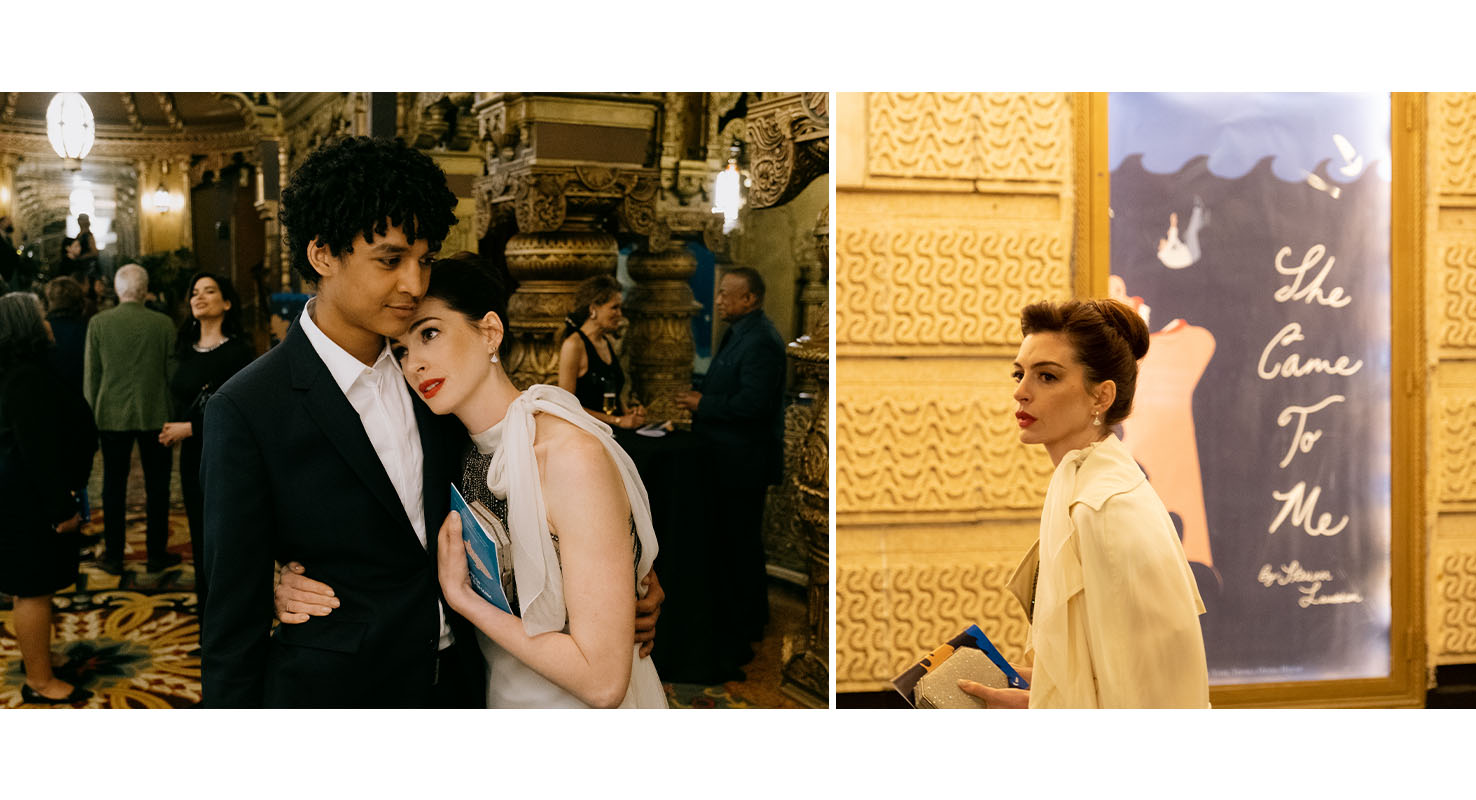
Being the hyper-organized person she is, what do you think draws her to someone like Steven, who feels a bit messy in life and his decisions?
AH: [Me, Rebecca, and Peter Dinklage] had a lot of conversations about that, about what it is, and the fact that their beginning would have been really messy. Falling in love with a patient is a really big deal. I actually called a therapist I know to say, "Walk me through exactly how this would work,” because I sensed it was a big deal, and she talked me through exactly why it’s such a big deal. They just got hit by this really strong need to be together, and I think they honored it and respected each other so much. They were ultimately such a safe choice for each other, [in] that they were both suffocating.
Peter and I had a lot of conversations about how do we have anti-chemistry, like in a way that brings the audience in. We don’t want to repel people with the anti-chemistry, but you have to be like, "Oh yeah—no, no, no.” Also not in a violent way. The way we usually think about people who shouldn’t be together is they’re miserable in these really toxic ways, and it’s like [Patricia and Steven] are not necessarily toxic. It’s not like that, but neither one is particularly thriving.
RM: They are functional as a couple.
AH: They are so functional. They are functional to the point of dysfunctional.
Can we talk about her faith and why she is so drawn to the Catholic church?
RM: I think that finally real faith is a bit of a mystery. I don’t think you can say, "I have faith because of this.” The way that I wrote her is that she has a father who is Jewish, her mother was Catholic, but she went to Catholic school. She’s a person with a big religious capacity, and some people are born like that. That was the religion that she finds herself more and more keenly drawn to. I don’t think there’s a logic to that, and that’s one of the things that undercuts her very logical secular life, is this other thing. It’s, in a funny way, this wild part of her, even though we don’t necessarily see religious faith as being that, but I think at its purest form it is.
AH: It’s funny. I was really lucky I got to go to the opening night of the opera in New York, and it was Dead Man Walking. I think we’re all familiar with the story, and in it, there’s an aria where the lead character is describing herself. She’s a nun, and she’s saying Jesus was a hothead, and so am I, and I just remember thinking, "Oh that’s funny. We don’t often think about it in those terms.” For Patricia, what Rebecca is saying is really interesting—that idea that she has these urges. She has these desires, and they are really out of step with what we understand to be a modern woman.
Part of the reason that she is having a hard time opening up to them is because it doesn’t make sense to her. It doesn’t make any logical sense, and she doesn’t know what part of herself she has to deny in order to follow this path, but ultimately, it is a mystery. I think that there’s a very long, continuous streak of mystics in our species in our history, and she is one of them.
RM: It doesn’t match her life—it pulls her apart.
AH: She has such a mystical life, but it kind of bubbled up inside of her until she couldn’t repress it anymore.
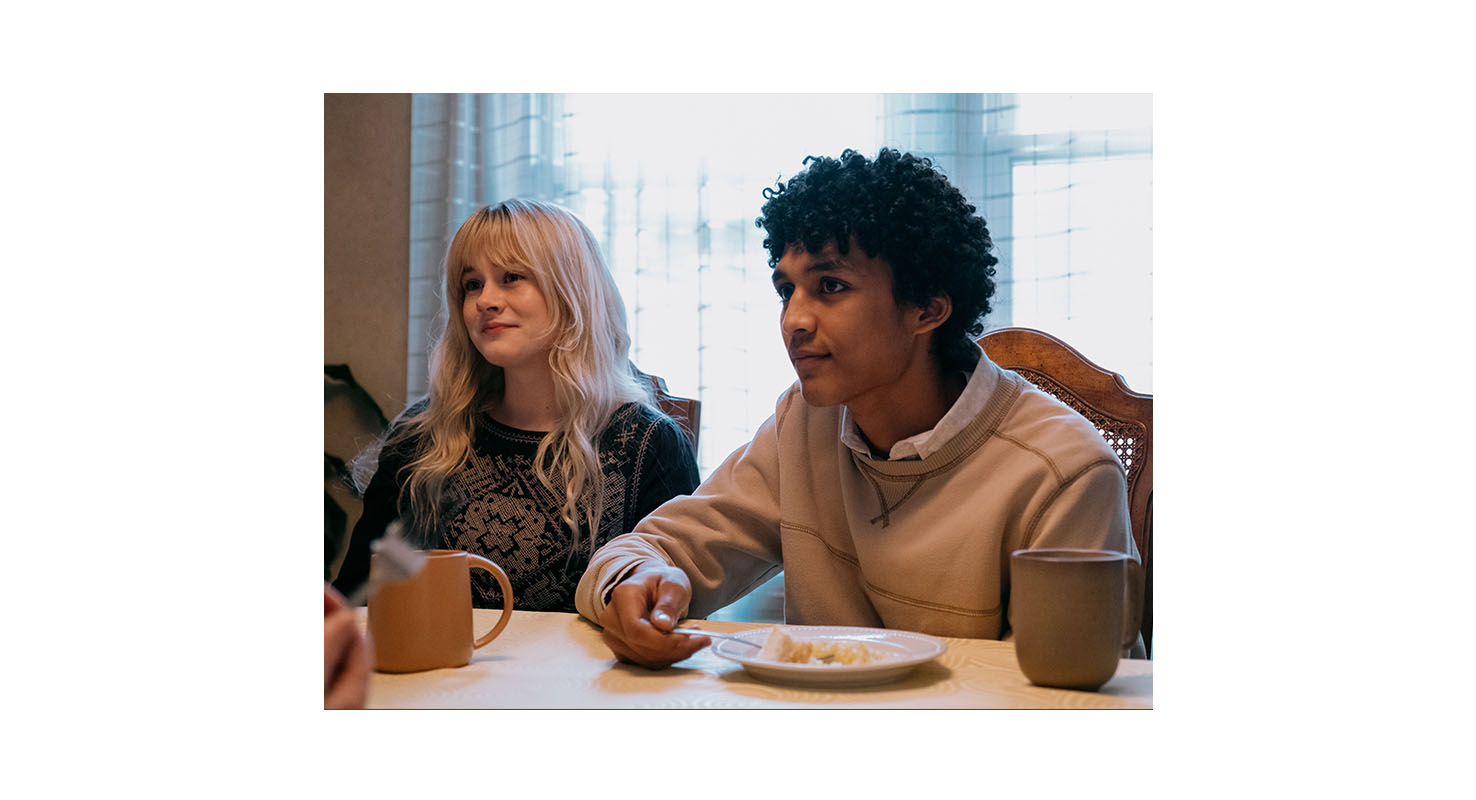
We find Steven in the midst of this seemingly career-ending creative block and then, as the film goes on, see how he deals with that. Can you tell me about a time you hit a block or felt like you lost your creative spark and what you did to work through that?
AH: I just went through one, actually. It was really, really painful. At a certain point, I literally thought, "Okay, do I have to quit this job?” And I’ve never quit a job. I thought, "Do I have to do that, because I don’t think I can do this.” I just said to myself, "You know what? They can fire you, but you’re not going to quit.” I kept putting one foot in front of the other. In this particular case, I had a really close person—the director was another close person, but I’m thinking of one person in particular—who just held my hand through it. It was a bit like childbirth in that sense. You have to get to the other side of it, and it’s really painful and confusing and ugly at times but kind of necessary. I feel very transformed by it.
RM: Wow. I have had true block situations, and I would say it would be even more terrifying as an actor to have that.
AH: Oh man, when that start date is coming closer to you… Yeah, it’s not pretty. The thing that I feel really grateful for is that I was graced by humanity in that moment. I was graced to process where I didn’t have to have everything all lined up and perfect and pretty and smooth the first day. I was allowed to be a human being during it. And then it did start to activate, and it did start to come alive, and at one point, it did literally feel like a block was physically changing. So yeah, it’s a little more personal than I normally reveal, but I just want to say to people, yes, it’s a real thing, and hold strong and stay vulnerable and maybe find a trusted friend who can help you through it.
RM: In my case, I volunteered somewhere because I had nothing I could do. I didn’t have a job at the time, I was living in Dublin, and I just volunteered for a period of months. I didn’t do it for this reason, but the thing that ultimately happened was I started writing about some of the women. It was a women’s shelter, and I started writing. In a way, taking attention off yourself is really helpful.
AH: And honestly doing whatever you got to do. Just try not to burn a bridge or salt the Earth.
She Came to Me is in theaters now.
Jessica Baker is Who What Wear’s Executive Director, Entertainment, where she ideates, books, writes, and edits celebrity and entertainment features.
-
 Your Ultimate Spring Shopping Spree: 54 Arrivals From COS, Ssense, Steve Madden, and More
Your Ultimate Spring Shopping Spree: 54 Arrivals From COS, Ssense, Steve Madden, and MoreAll your favorites are here.
By Natalie Gray Herder
-
 It's Spreading: Every Day, Another Chic L.A. Fashion Person Is Seen Wearing This Black Pants Trend With Ballet Flats
It's Spreading: Every Day, Another Chic L.A. Fashion Person Is Seen Wearing This Black Pants Trend With Ballet FlatsFrench girls also approve.
By Eliza Huber
-
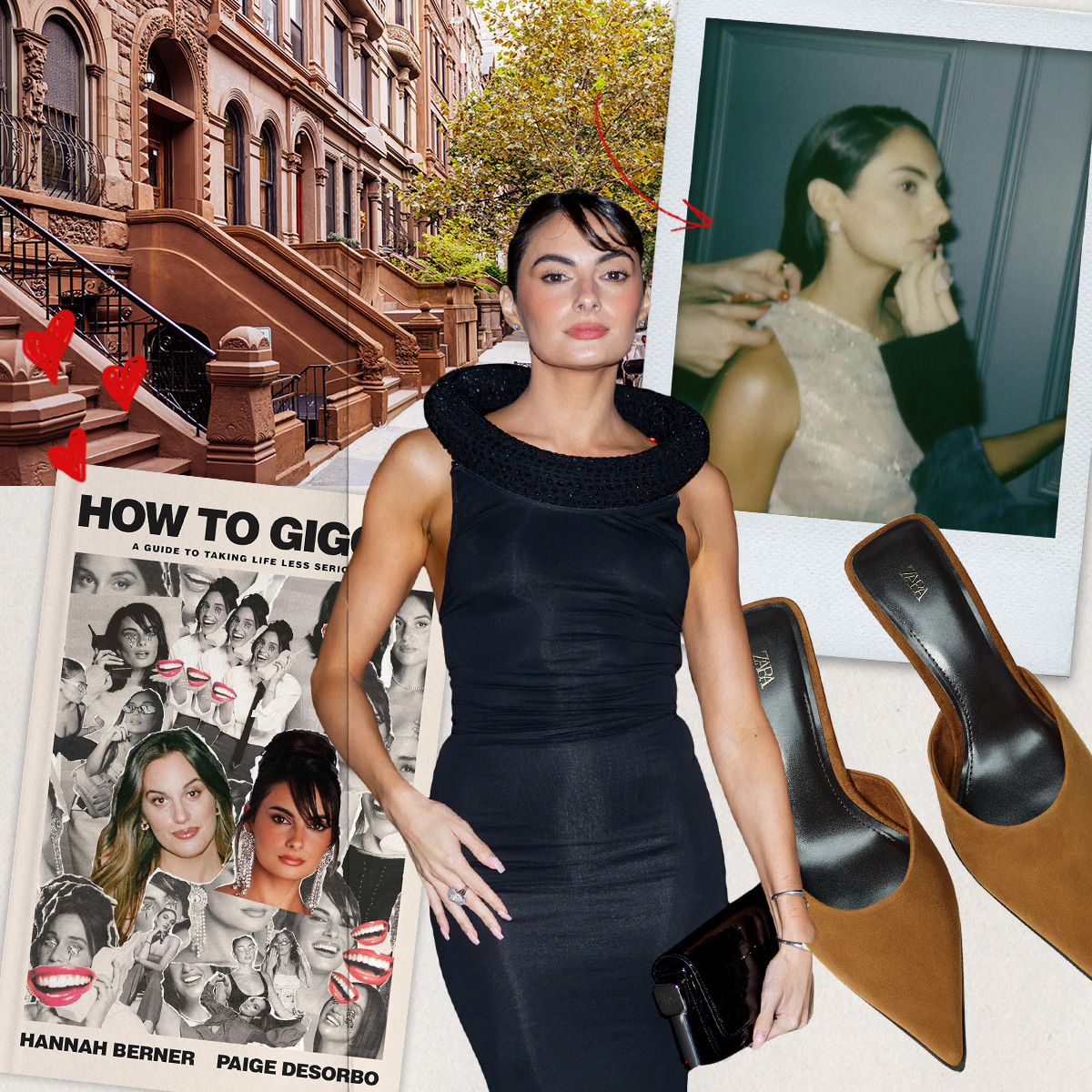 Paige DeSorbo's World: Her New Book, Favorite Zara Item, and What She Loves in Her Dream Apartment
Paige DeSorbo's World: Her New Book, Favorite Zara Item, and What She Loves in Her Dream ApartmentEverything going on in this It girl's universe.
By Bobby Schuessler
-
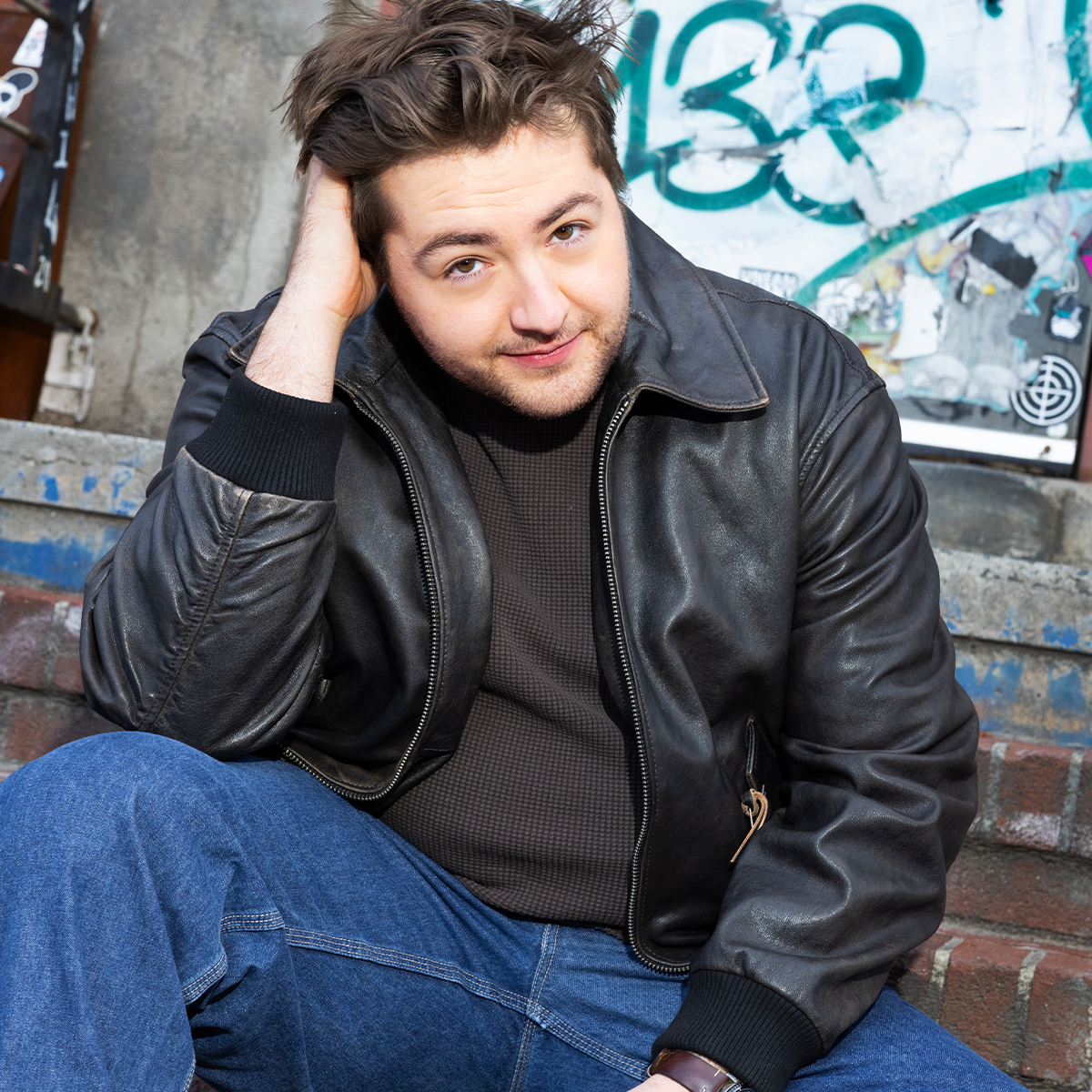 Michael Gandolfini Is Right on Time
Michael Gandolfini Is Right on TimeWith the anticipated finale of Daredevil: Born Again and A24's Warfare, the actor strikes a high note this month.
By Jessica Baker
-
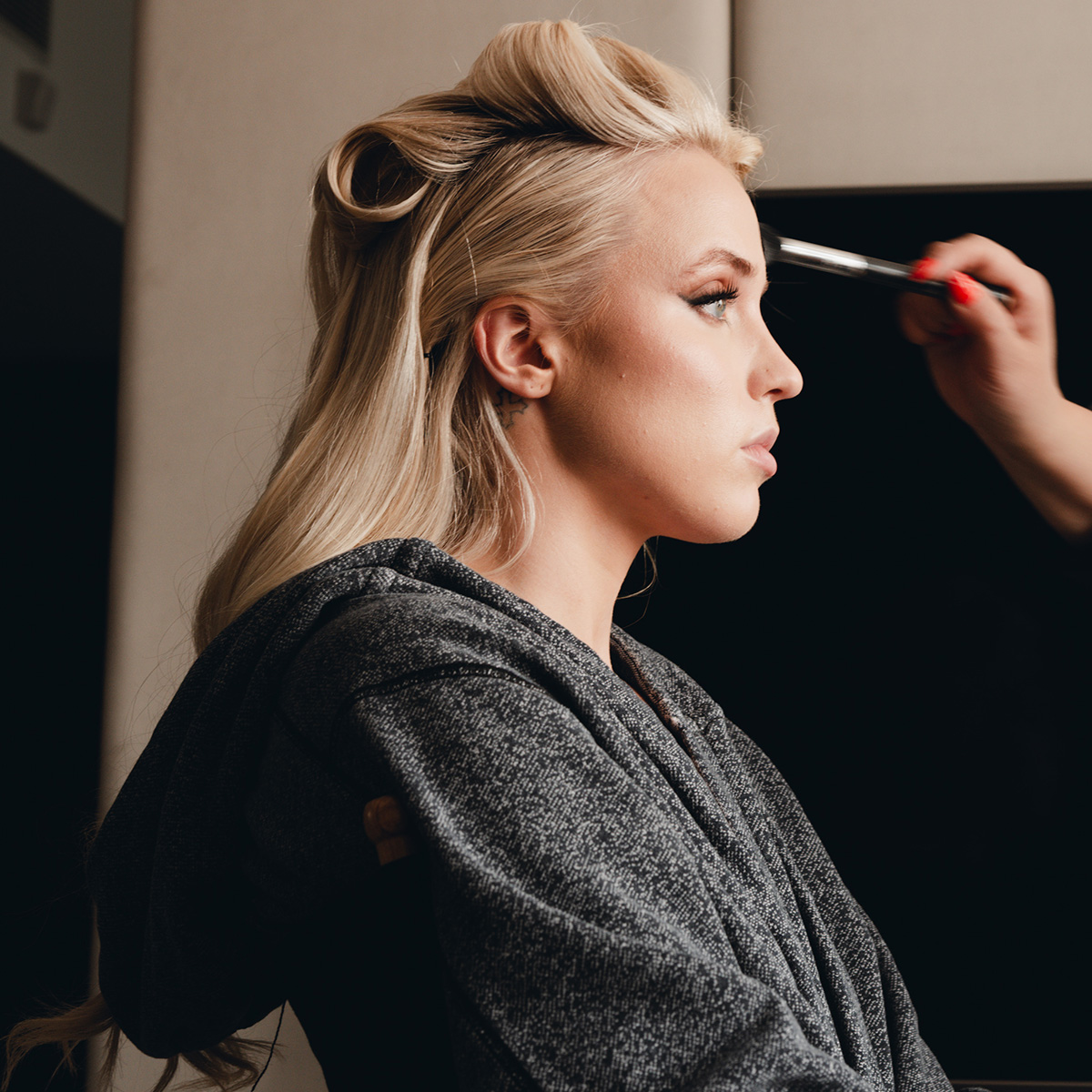 Hailey Van Lith Went Pro in Custom Coach, the Official Handbag Sponsor of the WNBA
Hailey Van Lith Went Pro in Custom Coach, the Official Handbag Sponsor of the WNBADetails inside.
By Eliza Huber
-
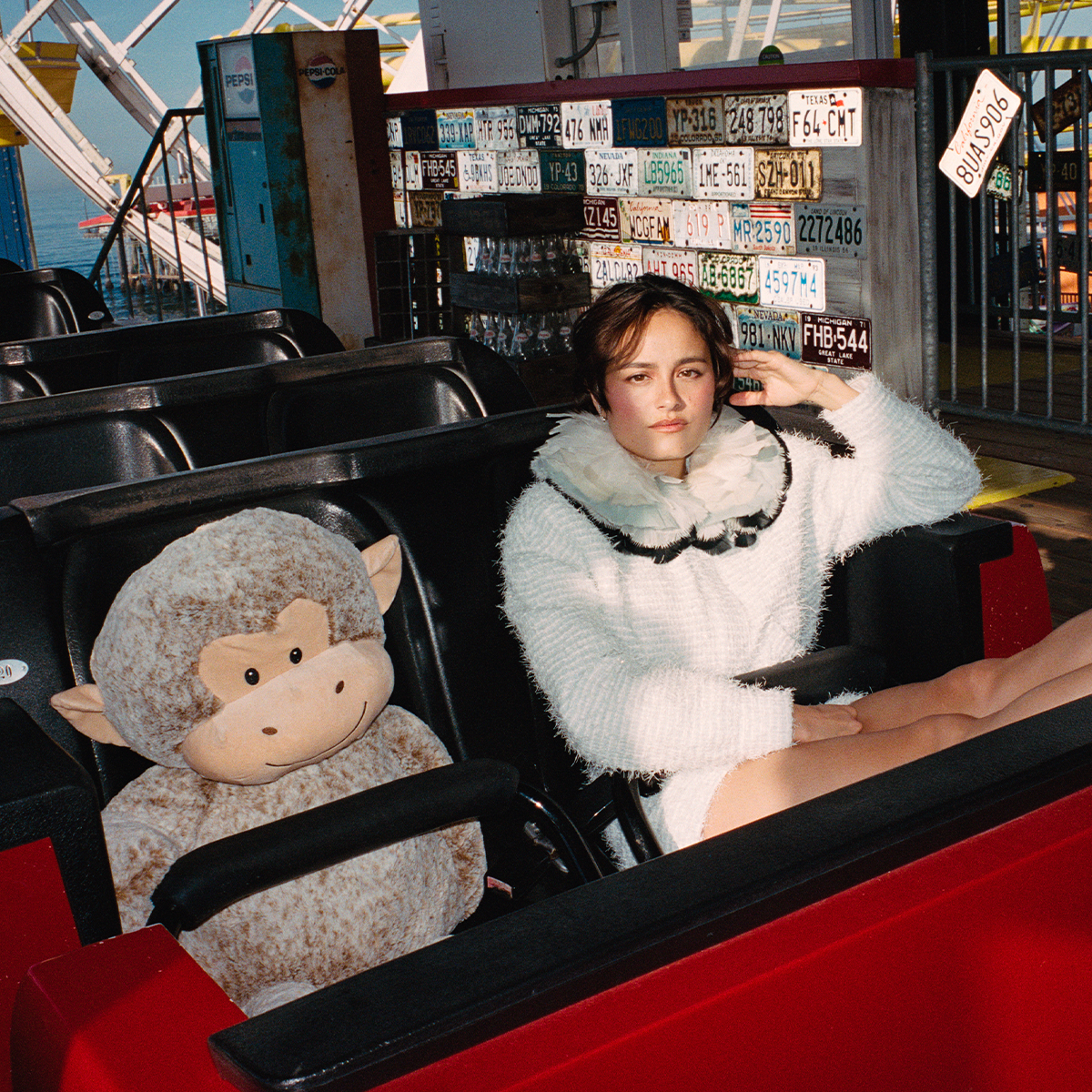 Chase Sui Wonders Demands Your Attention
Chase Sui Wonders Demands Your AttentionThe burgeoning actress came of age with Seth Rogen's movies. Now, she's starring in his latest project—The Studio, the Hollywood meta comedy now streaming on Apple TV+.
By Anna LaPlaca
-
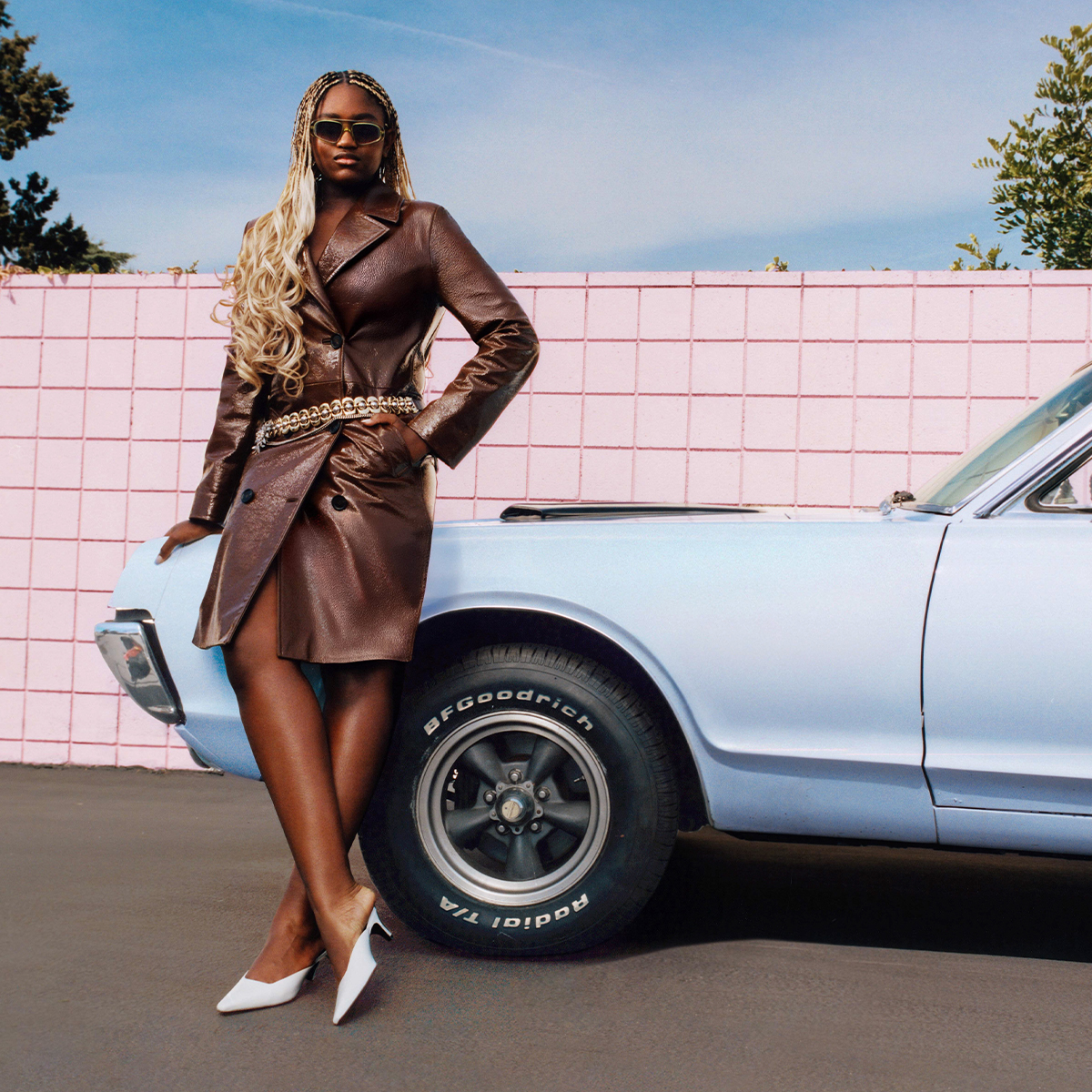 Reimagining Girlhood With Zaya Wade
Reimagining Girlhood With Zaya WadeAt just 17 years old, Zaya Wade is rewriting the narrative on what it means to be a Gen Zer.
By Ana Escalante
-
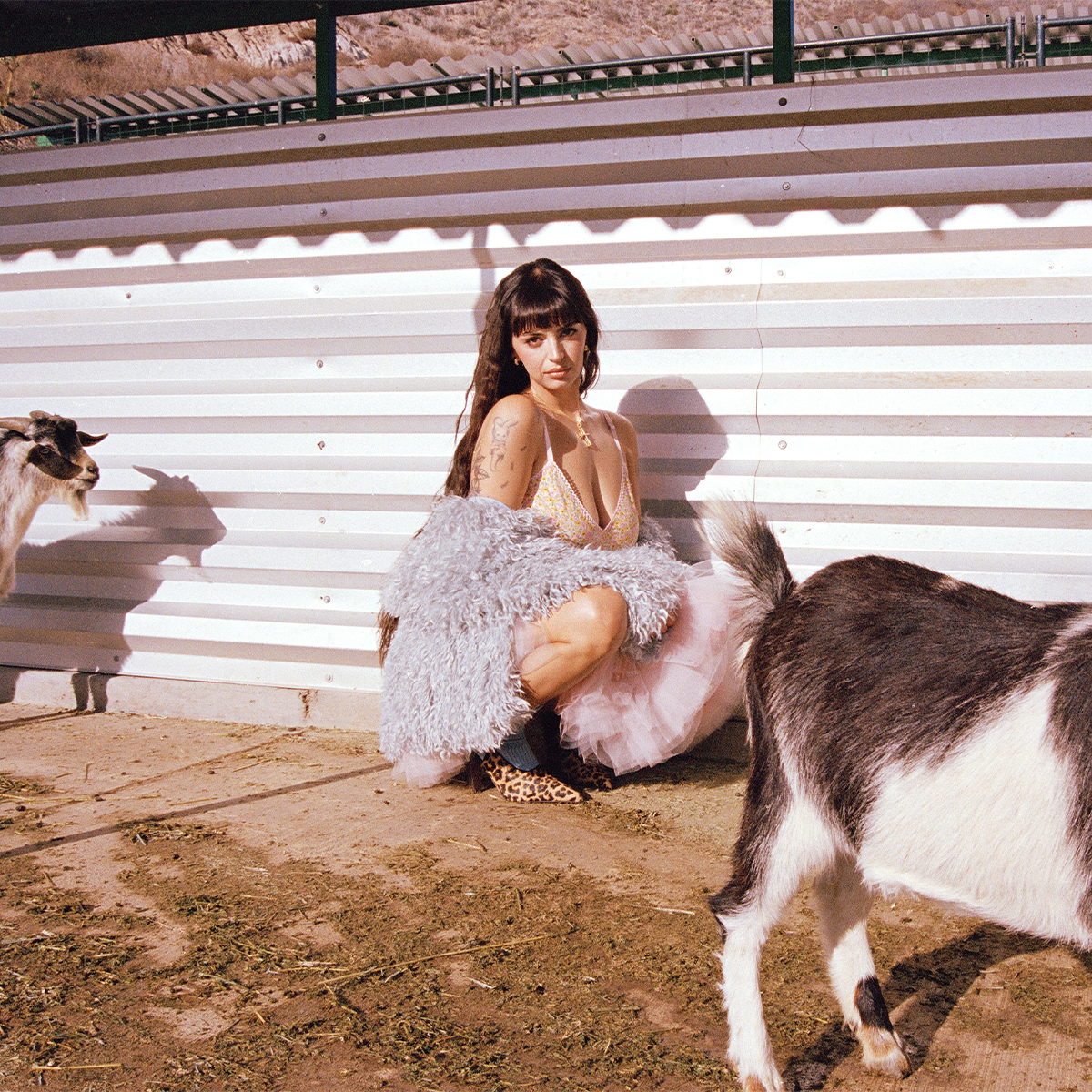 Rebecca Black Is Back and Ready to Show You All of Herself This Time
Rebecca Black Is Back and Ready to Show You All of Herself This TimeThe "Friday" singer has a brand-new pop EP, Salvation.
By Jessica Baker
-
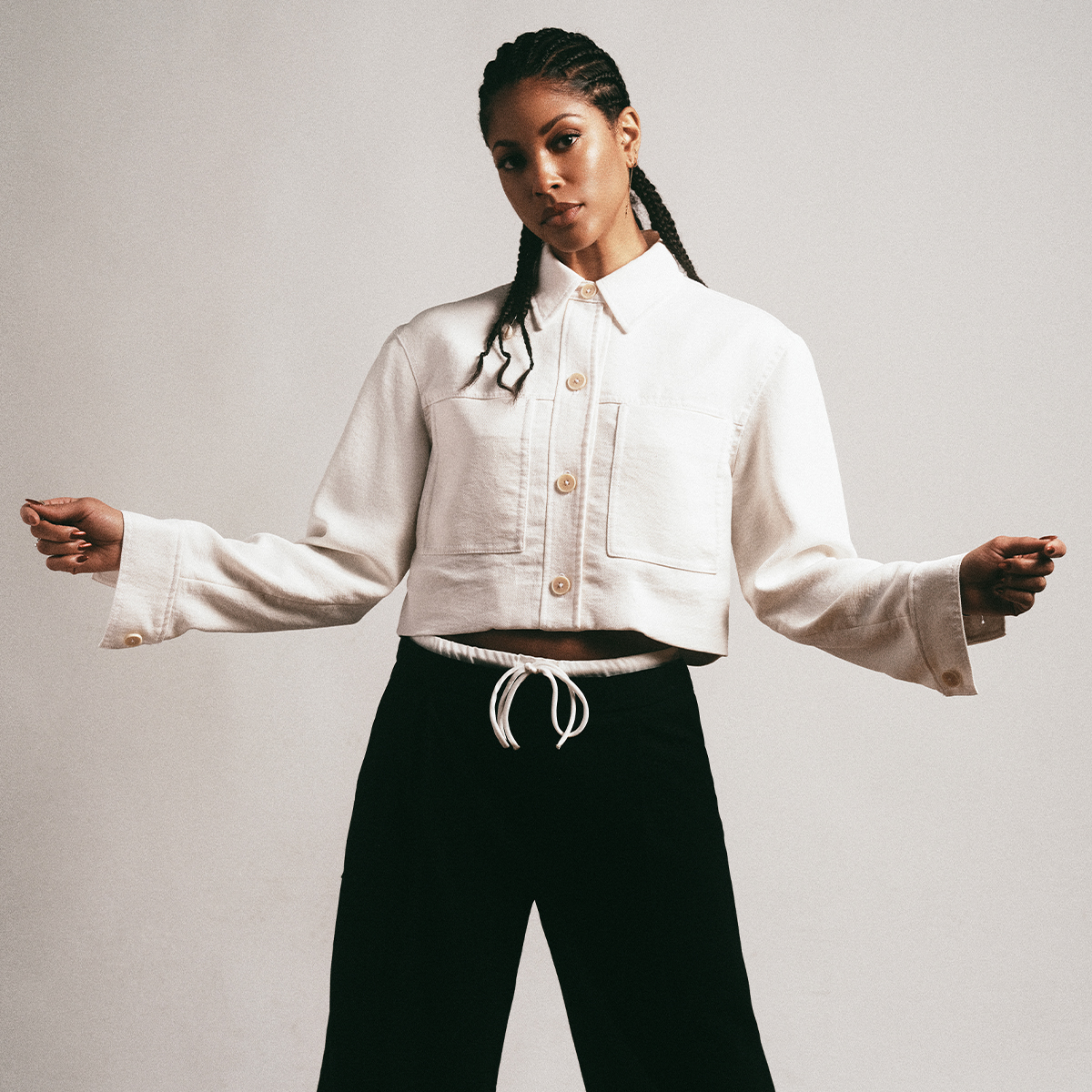 Lex Scott Davis on Joining the Suits Universe and Her Character's Iconic Wardrobe
Lex Scott Davis on Joining the Suits Universe and Her Character's Iconic WardrobeA lesson in power dressing.
By Jessica Baker
-
 The Power of Styling in Sports
The Power of Styling in SportsIn conversation with Skylar Diggins-Smith and her stylist, Manny Jay.
By Eliza Huber